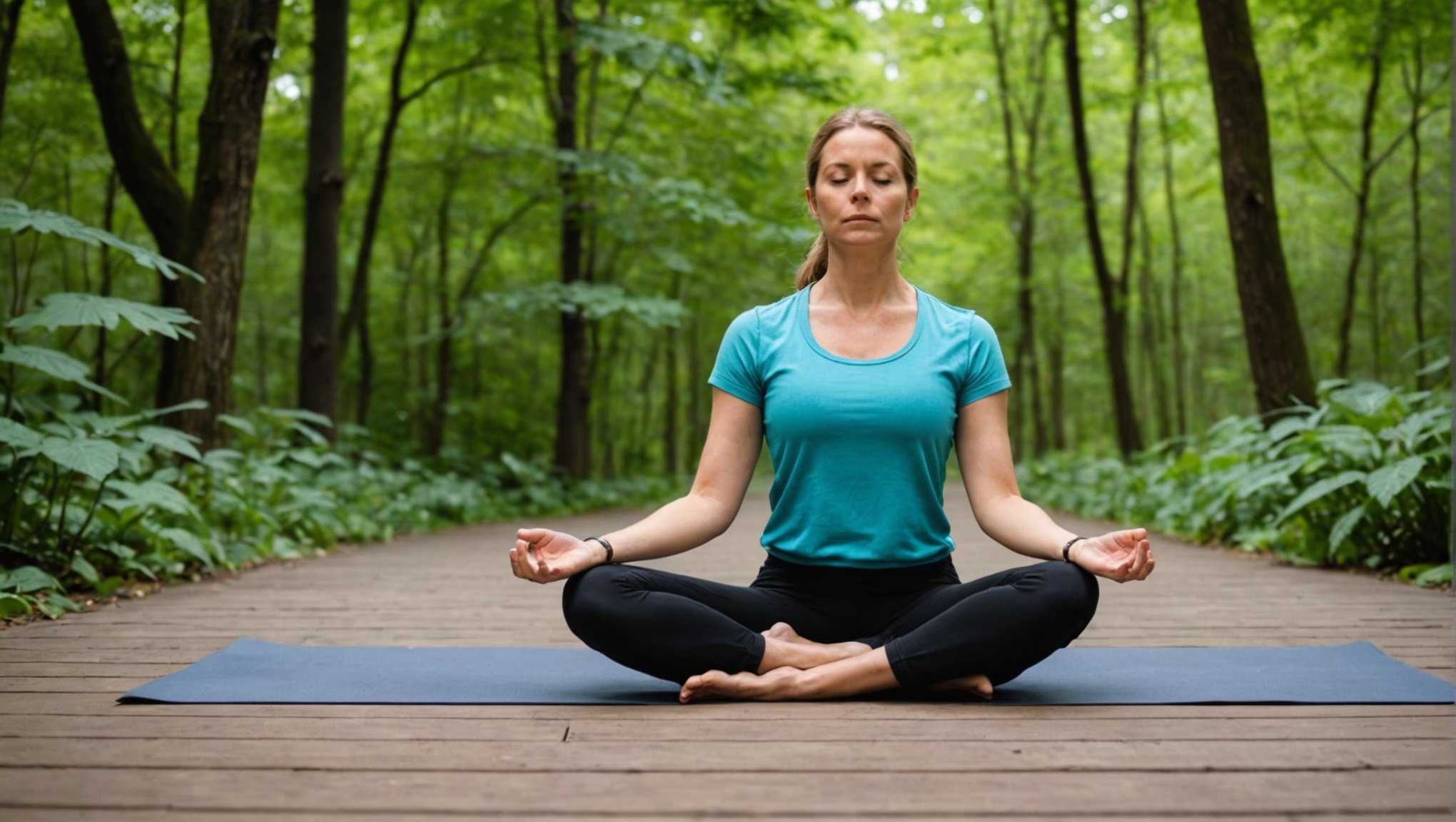Understanding Addiction and Relapse Rates
Addiction is a complex condition often characterised by compulsive substance use. The impact on individuals can range from physical health issues to significant changes in behaviour and mental health. Understanding addiction requires acknowledging how it alters brain chemistry and influences decision-making.
According to addiction statistics, relapse is a common occurrence in addiction recovery. Typically, relapse prevention strategies focus on the idea that addiction is a chronic disease. Long-term success involves managing both triggers and cravings effectively.
Also read : Revitalize Family Bonds and Conquer Stress: The Impact of Digital Detox Camps
Statistics indicate that relapse rates for addiction are similar to those of other chronic diseases. For instance, they align closely with illnesses like diabetes and hypertension. This similarity suggests that persistent, sometimes lifelong, management is essential for maintaining recovery.
Mindfulness and yoga have garnered attention in addiction recovery. These practices promote self-awareness and stress reduction, aiding in the prevention of relapse. They encourage individuals to focus on the present moment, providing tools for recognising and managing stress which can trigger substance use. Yoga, in particular, enhances physical well-being, while mindfulness helps foster a balanced emotional state. These techniques are beneficial adjuncts to traditional recovery methods. Embracing them empowers individuals in their journey towards sustained recovery.
Also to read : Boosting Teen Fitness: Do Interactive Workout Games Elevate Activity Levels?
The Science Behind Mindfulness and Yoga
Exploring the science of mindfulness and yoga reveals profound connections to mental health enhancement. Within this context, both mindfulness and yoga have gained recognition for their contributions to mental well-being, supported by research studies and historical evidence.
Historical Context of Mindfulness and Yoga
Mindfulness has roots in ancient Buddhist practices, promoting awareness of the present moment. Yoga, originating in India, combines physical postures, breathing techniques, and meditation, offering a holistic approach to mental and physical health. Both practices have evolved over centuries, becoming integral to numerous wellness approaches and gaining popularity worldwide.
Research Studies Supporting Mindfulness in Recovery
Multiple studies highlight mindfulness’s effectiveness in supporting addiction recovery. Research reveals that mindfulness improves emotional regulation, reducing stress and cravings. These practices also enhance self-awareness, fostering patience and addiction management by decreasing impulsivity.
Research Studies Supporting Yoga in Recovery
Evidence-based research indicates that yoga plays a significant role in recovery processes. Its benefits include stress reduction, emotional balance, and improving overall mental health. Yoga enhances physical resilience, essential for holistic addiction recovery, by promoting relaxation through breathing and posture exercises.
By comparing mindfulness and yoga, it becomes evident that both offer unique, complementary benefits in treating addiction, significantly aiding recovery with their holistic methods.
Effects of Mindfulness on Addiction Recovery
Mindfulness is not just a buzzword; it significantly impacts emotional regulation and stress management, pivotal components in addiction recovery. By honing one’s ability to remain present and aware, individuals are better equipped to handle the emotional upheavals that often accompany recovery.
Studies indicate that mindfulness practices can substantially lower relapse rates by enabling individuals to manage cravings and stress more effectively. For instance, in cases where traditional methods falter, mindfulness practices have demonstrated success in improving recovery outcomes. These practices help individuals observe their thoughts and impulses without judgment, reducing the likelihood of succumbing to relapse triggers.
Practical mindfulness techniques can be integrated into daily routines, offering a sustainable approach to recovery. Techniques such as mindful breathing, body scans, and journaling encourage self-awareness and facilitate emotional balance. These techniques are adaptable, allowing individuals to tailor them to personal triggers and stressors, enhancing their efficacy in real-world scenarios.
By fostering emotional clarity and resilience, mindfulness offers a promising path for those navigating the challenging journey of recovery, promising improved recovery outcomes and a more hopeful future.
Effects of Yoga on Addiction Recovery
Incorporating yoga practices into addiction recovery programs can greatly enhance both physical and mental health. Yoga, often described as mindfulness in motion, helps individuals become more attuned to their body’s signals and emotions. This heightened awareness supports self-regulation and reduces the likelihood of substance use as a coping mechanism.
Many individuals in recovery report significant improvements through personal testimonials. They highlight how yoga provides a sense of grounding and peace, aiding them in managing cravings and emotional distress. These experiences showcase yoga’s ability to foster resilience and a more positive outlook on life during the recovery process.
For those new to yoga, certain practices are particularly beneficial. Beginners in recovery might start with Hatha yoga, known for its gentle sequences and focus on breathwork, which promotes relaxation and stress reduction. Vinyasa yoga, with its dynamic flow, is also recommended as it encourages concentration and the ability to remain present.
Yoga serves as a versatile tool in addiction recovery, bringing together physical health practices with psychological benefits. It offers a structured approach to cultivating balance and mindfulness, enabling a comprehensive path to healing.
Integrating Mindfulness and Yoga into Recovery Programs
Integrating mindfulness and yoga into recovery programs provides a comprehensive platform for addressing both physical and mental aspects of healing. These holistic approaches enhance traditional addiction treatment by promoting self-awareness and emotional stability. But how are they effectively incorporated into rehabilitation efforts?
First and foremost, developing a structured framework is essential. Recovery programs can start by dedicating specific time slots for yoga sessions and mindfulness practices. This not only helps individuals engage with these practices regularly but also cultivates a sense of routine, which is crucial for recovery.
However, implementing these practices does present challenges. Access to trained professionals who can guide participants through mindfulness and yoga is vital. It is also important to tailor practices to suit the individual needs of those in recovery, acknowledging different levels of physical ability and mental preparedness.
For successful integration, both individuals and professionals should consider the following:
- Begin small by introducing basic breathing exercises and simple yoga postures.
- Encourage journaling or guided meditation as part of therapy.
- Provide written or digital resources for individuals to practice mindfulness and yoga independently.
Ultimately, by weaving mindfulness and yoga into the fabric of recovery programs, a holistic path to healing is established.
Expert Opinions and Personal Testimonials
Mindfulness and yoga have been transformative practices in the path to addiction recovery, with both expert insights and personal stories affirming their efficacy. A Q&A session with addiction recovery professionals sheds light on how these practices can significantly enhance healing. Experts highlight how mindfulness fosters self-awareness, allowing individuals to recognise triggers and develop healthier responses. Yoga, on the other hand, is praised for its ability to promote physical well-being while simultaneously calming the mind, offering a dual approach to recovery.
Incorporating narratives from those who have tread the recovery path, personal stories resonate deeply with those seeking understanding. Individuals recount how these practices have provided them with tools to face challenges confidently and encouraged resilience during testing times. Personal testimonials underscore the complementary role these disciplines play alongside traditional therapy, suggesting enhanced outcomes.
Diverse perspectives from various experts and recovering individuals point towards a consensus: mindfulness and yoga are not mere add-ons but integral components of a holistic recovery strategy. Their ability to offer enduring physical, mental, and emotional benefits marks them as powerful tools in the fight against addiction.
Analyzing Relapse Statistics and Future Directions
Understanding relapse statistics is crucial for gauging the efficiency of holistic methods like mindfulness and yoga in addiction recovery. Current trends illustrate a nuanced picture. While some practitioners experience reduced relapse rates due to these practices, others exhibit more variability in their recovery effectiveness. This discrepancy underscores the need for further research to elucidate these patterns comprehensively.
Future research directions focus on better understanding the specific elements of mindfulness and yoga that most effectively reduce relapse rates. This involves investigating individual differences among practitioners and the diverse ways these practices are adopted, as they might influence the outcomes significantly. With enhanced research methodologies, the connection between individual practices and recovery success could become clearer.
Potential advancements in holistic recovery methods may involve integrating cutting-edge technologies. For example, digital platforms providing guided mindfulness exercises or yoga sessions tailored to support recovery could be developed. This integration promises a personalized approach, potentially enhancing recovery effectiveness.
Overall, a more precise understanding of relapse statistics and the effectiveness of these practices could lead to more targeted interventions. Therefore, the emphasis remains on fostering robust research initiatives to expand the horizons of addiction recovery with mindfulness and yoga.











